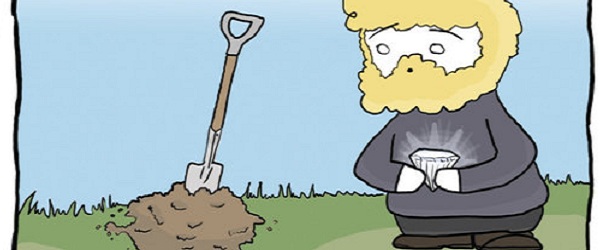
Embracing my Apatheism
Commentary, Culture, Memoirartwork above by Glen O’Neill
I used to believe in God.
Every day, as I went through the motions of high school, I would send up quick prayers to Jesus. I pictured the Almighty as this warm, mystical wind that was carrying me through life. My relationship with God gave me a sense of purpose, challenged me to be a better person, and informed my opinion on basically everything. If I was worried, stressed or confused all I had to do was send up a quick plea to the Almighty, and everything was better.
I was a part of a vibrant community of believers at my local church. Our youth group did work with the homeless people of the Downtown Eastside of Vancouver. We travelled to Mexico and Brazil on mission trips. We had worship services, bible studies and games nights. I’ve never felt so strongly like I belonged somewhere, or like I was doing something important with my life.
Then I grew up.
One by one, I watched my friends “fall away” from youth group. It was always the same story. Someone would start dating a non-Christian or would be tempted into the party lifestyle. It seemed like as soon as anyone went away to university, they would come back after their first semester and announce they had become an atheist. I saw post-secondary education as a poisonous, faith-stealing endeavor that was robbing my friends of their relationship with God.
But then, at about the age of 19, I started asking questions too. I’d held these exclusivist, puritanical views without really questioning them. Why should I? I was happy and I was surrounded by people who had carefully constructed explanations for their beliefs. I was young enough to know everything then, and like the rest of the people in my church, I had a parable or a bible verse for every scenario. I’d read my C.S. Lewis, my Donald Miller, my Philip Yancey. I had an arsenal of one-liners. What more could I need?
In the summer of 2004, I left my faith behind.
For the next few years, I desperately searched for the answers. I took college courses in Eastern religions. I wandered through Buddhist temples and signed up for introductory classes to the Baha’i faith. I ate a “love feast” at a Hindu temple in Vancouver, and even took a personality test at the Church of Scientology. I was intent on making sense of my world.
For a while, I was interested in atheism. I read Richard Dawkins and Christopher Hitchens. I watched videos of Sam Harris’ speeches on YouTube. Atheism is a seductive religion of its own, mostly because it is just as evangelical and intent on converting the world as any major faith. I loved the audacity and pomposity of these men, and their devotion to science and common sense. I collected atheist parables like I once memorized bible verses. But ultimately, atheism came up short too.
One day, I was driving with my deeply religious sister, and I told her one of the parables I’d learned. It compared faith in God to the delusion of having a giant diamond buried in your backyard, and made the argument that most people don’t even bother to dig. They’re just content in the knowledge that the diamond is there. It gives them hope.
She turned to me and said, “Will, that’s really mean.”
It had never occurred to me that a belief, that an argument, could be “mean”. In my mind, I was just bouncing around ideas. I realized that I didn’t want to be a bitter has-been intent on robbing other people of their faith. Ditching on religion was one of the most terrifying, depressing and traumatizing things I’d ever done. For years I had been miserable and lost. Why would I wish that on my sister? She was happy, and I want her to stay happy.
These days, my quest for understanding has lost its urgency. I’m pretty comfortable with the phrase “I don’t know”. I feel like it’s the most honest thing we can say when we’re faced with the infinite mystery and overwhelming chaos of the universe. I settled on the label agnostic for a long time, but now I’ve found something even better: apatheism.
The fact of the matter is, the question of whether or not there is a God seems profoundly unimportant to me. I know it’s crucial for some people, but right now nothing interests me less. Being a better person—a better brother, son, friend, neighbour—that’s what’s important. And if some people need religion to get them stoked about waking up in the morning, I can’t fault them for that.
But maybe if people spent less time thinking about religion, and spent more time thinking about the world we live in, maybe we’d be better off. If more people embraced apathy about the Big Picture and took time to notice the Here and Now, maybe we could make this world a little more worthwhile to live in.
And if there is a God, I’m sure He’ll understand.






















